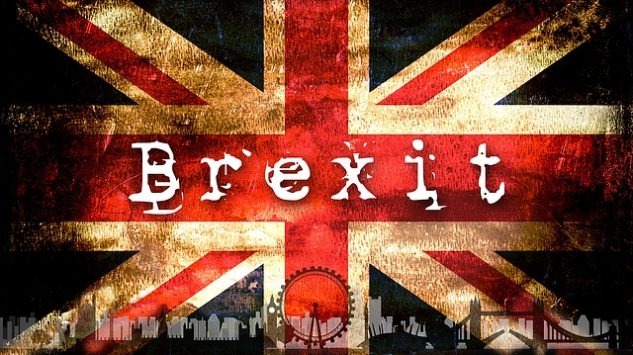Issue Briefs

Conservatives punished by British voters in local elections
Graham Bardgett
May 9, 2019
There is one staggering fact facing UK Prime Minister Theresa May: her Conservative Party lost a colossal 1,334 councilors in the English Local Authority elections. Mrs May claimed voters wanted the main parties, Conservatives and Labour, to “get on” with Brexit. But with the strongly pro-EU Liberal Democrat Party gaining 704 seats and leader Sir Vince Cable calling every vote received “a vote for stopping Brexit”, perhaps there is another message that the local council heartlands elections threw up. Maybe the people of Britain have changed their minds since narrowly voting to leave in the June 2016 EU Referendum.
Pressure on May
There is still growing pressure on Mrs May to allow another Referendum on the EU Brexit decision. And amid all else, Mrs May announced some weeks ago she would resign to allow the next stage of Brexit to proceed. Former Conservative Party leader Ian Duncan Smith called her a caretaker prime minister and urged her to go. And other senior Conservatives are waiting in the wings ready to fight out a leadership contest if the party’s internal rules change.
LibDems are the winners
Jeremy Corbyn’s did not win either. The Labour Party lost 82 seats in the local council elections, where they had expected to make gains.
Now the Liberal Democrat Party has this message for the next political battle of 23 May, when the UK must elect EU MEPs. A LibDem spokesman said: “On 23rd May, we want to elect a Liberal Democrat MEP in every part of the country. We have a clear strategy and message – we are the party of remain and we’re running in the EU Elections to stop Brexit.”
Difficult negotiations
And as talks on the way forward on Brexit set to resume on 7 May after the British Bank Holiday Weekend, Labour’s Shadow Chancellor John McDonnell said he does not trust Theresa May after details from cross-party talks were leaked to the press.
The Prime Minister, still believing she can get her plan through Parliament in a new fourth attempt, called on Labour leader Jeremy Corbyn to “put their differences aside” and agree a Brexit deal. But John McDonnell said she had “blown the confidentiality” of the talks and “jeopardized the negotiations”.
The UK was due to leave the EU on 29 March, but the EU delayed it to 31 October after MPs failed to agree a deal. Mrs May put the plan she had negotiated with the EU to Parliament three times, but it did not get the support of MPs in the Commons.
Writing in the Mail on Sunday newspaper Mrs May said Mr Corbyn should “listen to what voters said” in Thursday’s local elections – which saw the Conservatives lose 1,334 councilors and Labour fail to make expected gains, instead losing 82 seats.
The prime minister blamed the Brexit impasse for the losses – but said the elections gave “fresh urgency” to find a way to “break the deadlock”.
United front?
Mrs May also said she hoped to find a “unified, cross-party position” with Labour – despite admitting that her colleagues “find this decision uncomfortable” and that “frankly, it is not what I wanted either”.
But while Corbyn said the talks between the two parties would continue on Tuesday, he said they had been undermined after an article in the Sunday Times detailed where Mrs May was willing to compromise – namely on customs, goods alignment and workers’ rights.
The paper also said the PM could put forward plans for a comprehensive, but temporary, customs arrangement with the EU that would last until the next general election.
Mr McDonnell told the BBC’s Andrew Marr: “We have maintained confidentiality as that is what we were asked to do. We haven’t briefed the media. “So, it is disappointing the prime minister has broken that, and I think it is an act of bad faith. “I fully understand now why she couldn’t negotiate a decent deal with our European partners if she behaves in this way.”
No trust
Asked if he trusted the prime minister, the shadow chancellor said: “No. Sorry. Not after this weekend when she has blown the confidentiality we had, and I actually think she has jeopardized the negotiation for her own personal protection.”
He even said that the backdrop to the talks was that there were many leadership contenders vowing to scrap any deal between Labour and Conservatives. He said it was a bit like dealing with a company in administration.
Sir Graham Brady, the chairman of the 1922 committee of Tory backbenchers that months ago voted to have Mrs May continue as Prime Minister for the time being, told the Daily Telegraph that staying in a customs union could lead to a “catastrophic split” in the Conservative Party.
And newly formed Brexit Party leader Nigel Farage said that millions of people would give up on Labour and the Conservatives if they agreed a deal, adding it would be the “final betrayal”. But the new International Development Secretary Rory Stewart said the Tories might have to “take some short-term pain” to finish the job.
Will there be a political compromise on Brexit?
The leader of the Scottish Conservatives, Ruth Davidson, at her conference at the weekend, also said her party needed to “start walking ourselves back” from the extremes of the argument to find a compromise, telling the BBC’s Andrew Marr “there is a deal to be done” with Labour.
Meanwhile, Labour’s deputy leader Tom Watson said it was “absolutely right” for the talks to continue. However, he also said “I don’t think we should be in any doubt that the Labour Party membership and vast numbers of my colleagues in Parliament don’t want us to just sign off on a Tory Brexit.”
“They don’t want us to bail the prime minister out of the problem of her own making and a very large number of our members think the people should decide on what that deal looks like.”
The comments come after the People’s Vote campaign – which wants a referendum on a final Brexit deal – published a letter signed by more than 100 opposition MPs saying any new, agreed deal should be put to the public for a vote.
Labour MP Bridget Phillipson, who backs the campaign, said: “I think we have reached a stage now that whatever deal is agreed… it has to go back to the British people. Something stitched up, cobbled together in Westminster will not be sustainable in the long run. I want to check it is what people want now.”
No Brexit?
There is still another fact to consider: the millions who marched on London and who also signed the Parliamentary Petition to revoke Article 50 allowing scrapping leaving the EU altogether.
It looks like another long summer of Brexit headlines, even amid some claims that a Deal was about to be done.
 |
Graham Bardgett is a Global Policy Institute Fellow. He has reported for the Los Angeles Post Examiner and Baltimore Post Examiner and is a former BBC Radio News sub-editor in London and Veteran reporter of the Northern Ireland Troubles and Peace Process. He had five years on the news desk of BBC Northern Ireland, nine years as a security reporter on the Belfast Telegraph, four years as Ireland staff reporter for the Daily Mail, and was a correspondent for the Financial Times, Daily Mirror, Sunday Express, and Irish Daily Mail. During his career he has also reported from Berlin, Luxembourg, and Rome, and carried out public affairs critical incident consultancy work in Kazakhstan and in London. He had four years with PwC international accountants and consultants; and was previously a UK Government Higher Executive Press Officer. |
The views and opinions expressed in this issue brief are those of the author.